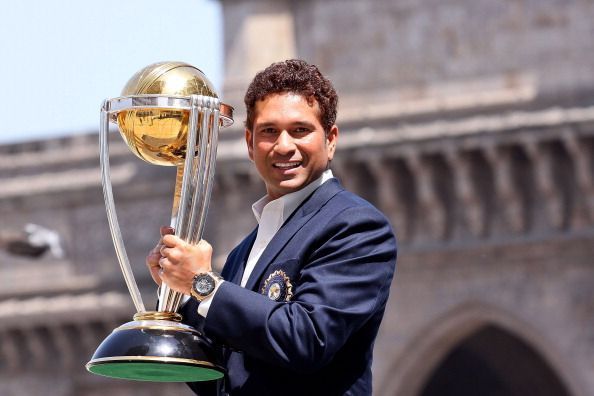
Top 8 Cricketers with the most 'Man of the Match' awards in World Cup history
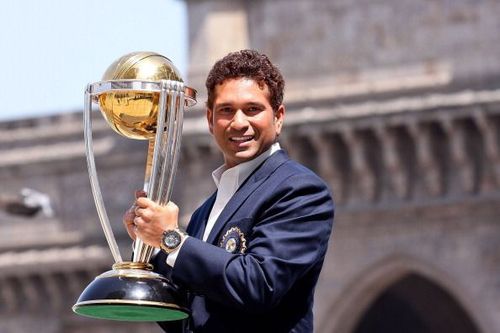
Nearly hundred years after the first Test was played in 1877 ODI cricket made its debut in 1971. Just like what T20 cricket is doing right now, the shorter ODI format of the game grabbed the attention of more people.
Four years after the first one-day game was played, the inaugural World Cup was played with eight teams - Australia, England, West Indies, India, New Zealand, Pakistan, Sri Lanka and East Africa. The first three World Cups, also known as Prudential Cups, saw each team play out 60 six-ball overs.
Apart from the overs reduction from 60 to 50, the format has seen many different changes like the introduction of colored clothing, use of white balls, day-night matches, continuous changes in field restrictions and many more. Even with T20 cricket currently ruling the roost, the still ODI World Cup remains the most prestigious and celebrated event in cricket.
Every cricketer dreams of donning the national colors and representing the country in the World Cup is definitely a level up. Things get even better when you help the nation win a World Cup match by making a significant contribution.
In this article, let us take look at the top eight cricketers who have contributed to their team's success by winning the man the matches on most occasions.
Also read: 5 reasons why India can win the 2019 World Cup
#3 Man of the Match awards - 5
Lance Klusener (South Africa)
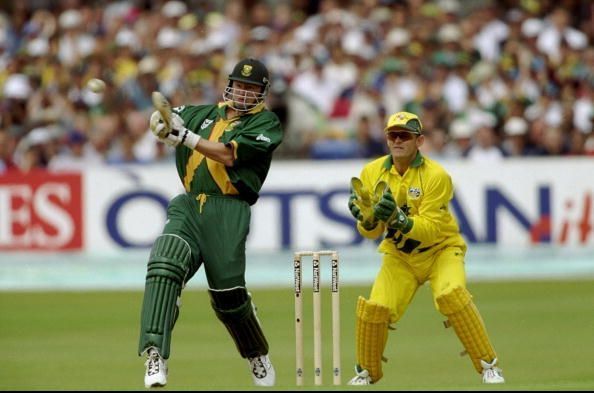
Lance Klusener is one of the most accomplished South African cricketers in ODI cricket. Klusener's best performances for his team came in the 1999 World Cup in which he won the man of the match on four occasions.
In the same World Cup, he won his first MoM award against Sri Lanka for his all-round performance. With a score of 115-7, South Africa were in deep trouble when Klusener came in to bat. By scoring a 45-ball 52 he took his side to a respectable total of 199 by the end of 50 overs. During the chase, he picked 3 wickets and helped South Africa win the match by 89 runs.
Also Read : Most World Cup Man of The Matches
Incidentally, Klusener's best performance with the ball also came in the 1999 World Cup. His 5 for 21 helped South Africa restrict Kenya to just 153 which they chased down comfortably with seven wickets to spare. Apart from the four MoMs in the 1999 World Cup, Klusener won another award in the 2003 World Cup. That too came against Kenya for his bowling figures of 4 for 16.
Also Read this list featuring Lance Klusener - '3 Batsmen who scored 400 or more ODI runs before getting out again'
AB de Villiers (South Africa)
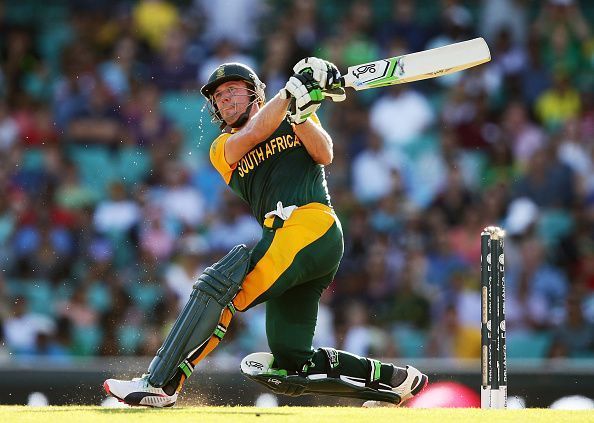
AB de Villiers without any doubt is one the greatest batsmen in the ODI format. He is not only loved by crickets fans in South Africa but also by the followers of the game across the globe.
Unlike Lance Klusener who won the majority of his awards during the 1999 World Cup, de Villiers received at least one award in each of the 3 World Cups that he was part of. His first man of the match award came against the home team, West Indies in 2007. His 130-ball 146 as an opener helped South Africa post a total of 356, which helped them win the match by 67 runs.
Incidentally, three of ABD's five MoM awards in the World Cup came against West Indies by scoring three centuries against them in three different World Cups. In the 2015 World Cup in Australia and New Zealand, he clobbered the West Indian bowlers to all parts of the ground.
He recorded the fastest 150 in the history of ODI cricket by scoring a 66-ball 162 and took his team to a mammoth total of 408. His outrageous hitting helped South Africa record a humongous 257 run victory over the Windies.
Also read:30 best AB de Villiers images to commemorate the end of an illustrious career
Vivian Richards (West Indies)
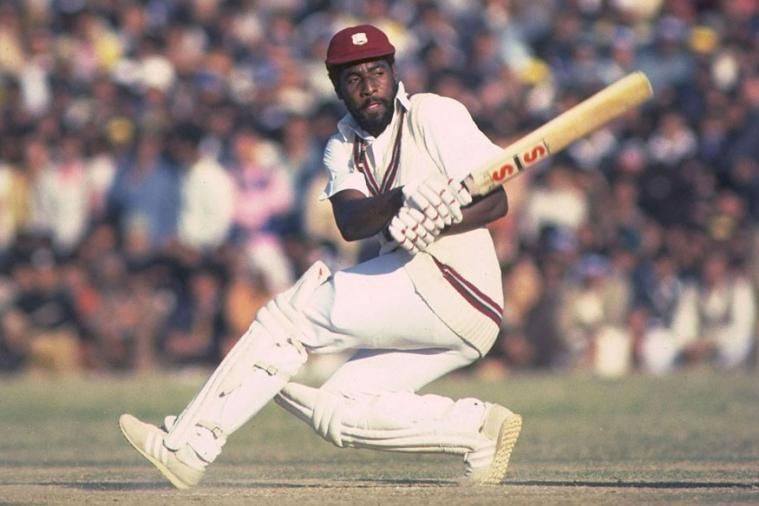
In 2000, a 100-member panel of experts voted Sir Issac Vivian Alexander Vivian Richards, one of the greatest batsman of all time, as one of the five cricketers of the 20th century along with Sir Don Bradman, Sir Garfield Sobers, Sir Jack Hobbs and Shane Warne. Viv Richards played for West Indies in four World Cups including the title triumphs of 1975 and 1979.
He did not win a single MoM award in the 1975 World Cup but his first man of the match could not have come at a better time in the 1979 World Cup. West Indies were in a bit of a turmoil as they lost four key batsmen without even putting a hundred runs on the board.
For the fifth wicket, he stitched a 139 run partnership with half-centurion Collis King. Richards and King were the only two players who made a score in excess of 20. The unbeaten 138* by Richards ensured that West Indies had a good total of 286 at the end of 60 overs. The dangerous West Indies bowling attack did the rest of the work as they took England's last eight wickets for just 11 runs.
Also read: 5 batting records that could be broken soon
Graham Gooch (England)
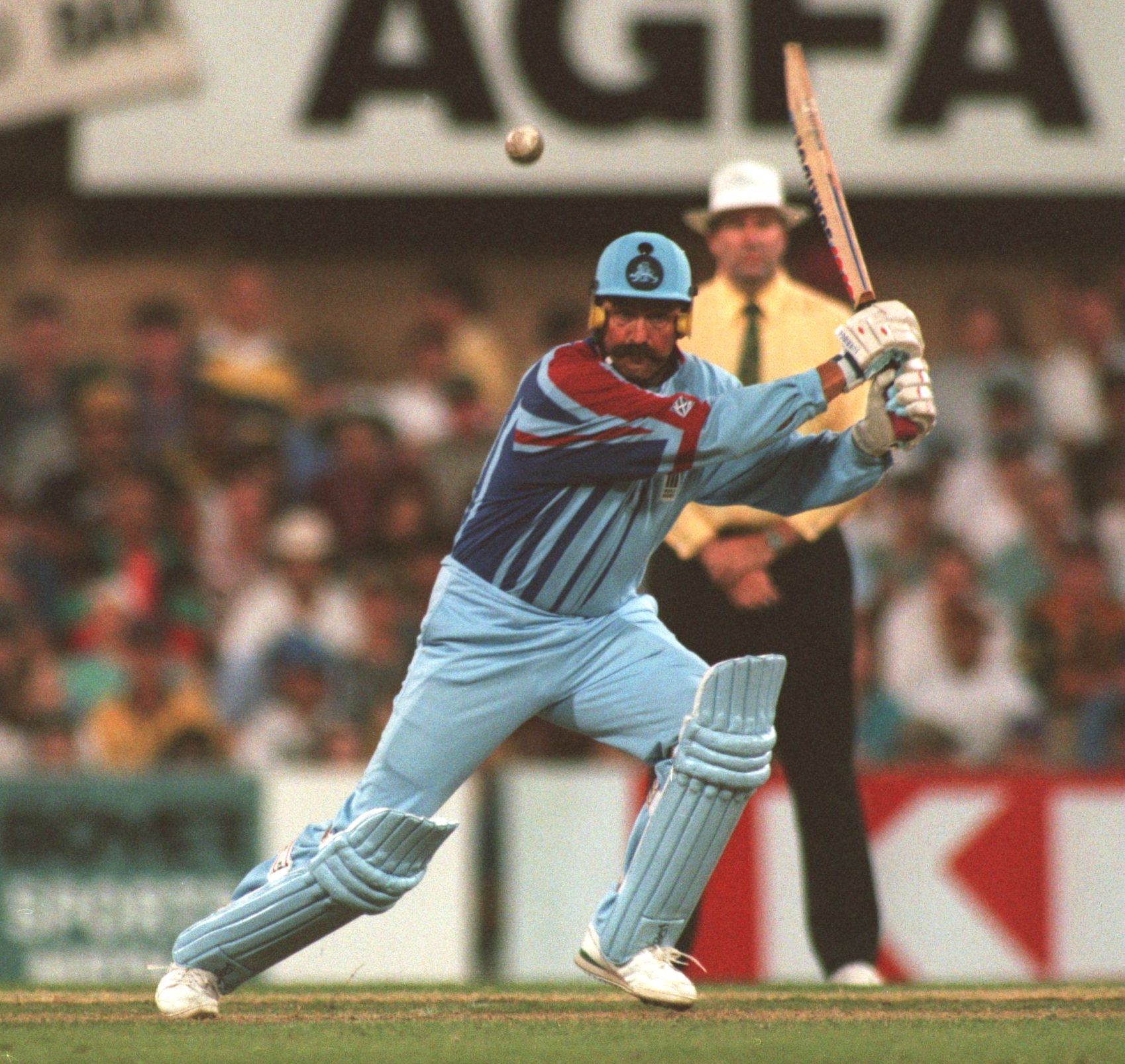
While Viv Richards took West Indies to a formidable score in the 1979 World Cup final, it was the wicket of Graham Gooch that triggered the magnanimous collapse during the chase. At one stage, England looked on course to chase down the total with the scoreline reading 183-2 but were soon bundled out for 194.
Graham Gooch who won two Man of the Match awards in the course of the tournament could not help his side lift the coveted trophy. His first man of the match came against the Australian team. A run-out apocalypse derailed the Australian innings and they could manage only 159 runs for the loss of wickets. Gooch's half-century ensured that his team won the match comfortably by 6 wickets.
He missed the 1983 World Cup due to a 3-year ban imposed on him due to a rebel tour to ostracized South Africa. In the 1987 World Cup, he returned in fine fashion winning the three consecutive man of the match awards, including the one in the semi-final against India.
Gooch's 115 as an opener helped England post a total of 254 in the first innings. The century by Gooch ensured that England reached the final by beating India by 35 runs. In the final, England fell short of Australia's total by just 7 runs. Graham Gooch played his third and final World Cup in 1992. Incidentally, it was also England third and final appearance in a World Cup final.
Mark Waugh (Australia)
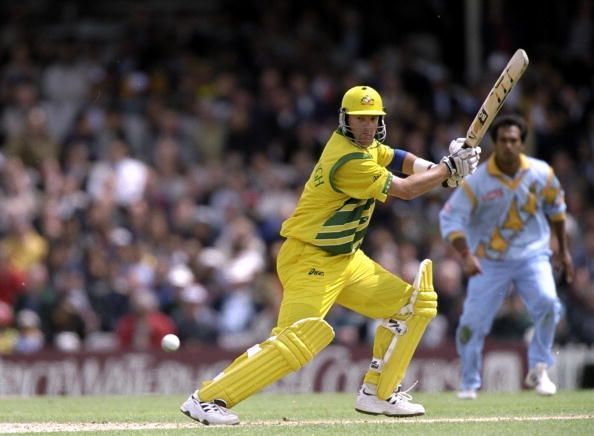
After winning the 1987 World Cup, Australia failed to reach the final of the 1992 World Cup which was played between Pakistan and England. Mark Waugh, who won first MoM award by scoring a half-century against Zimbabwe in 1992 World Cup, came into the 1996 tournament with a much stronger intent.
He won three Man of the Match awards by scoring three centuries and took his team to the final where they lost to Sri Lanka. While his first century of the tournament came against Kenya, the second and the third centuries were against India and New Zealand respectively.
Against India, Mark Waugh put together a partnership of 103 with half-centurion Mark Taylor for the first wicket. Apart from the Marks, no other player scored in excess of 25. But thanks to Waugh's century, Australia could post a total of 254.
During the chase, he also took the wicket of India highest run-getter of the match, Sachin Tendulkar, who scored 90 runs off 84 balls. In the end, Australia managed to win the match by 16 runs as India were all out for 242 with two overs left to spare.
In spite of winning three MoMs in the 1996 World Cup, the 1999 one might be the more memorable one for Mark Waugh. After losing at the final hurdle, Australia led by Steve Waugh ensure that they lifted their second title in 1999.
After bundling out Pakistan for 132, the Aussie batsmen were in a hurry to finish the match as they chased down the total in the 21st over. While the other batsmen were on an attacking spree, Mark Waugh played the anchor role and took his side to victory with an unbeaten 37.
Sanath Jayasuriya (Sri Lanka)
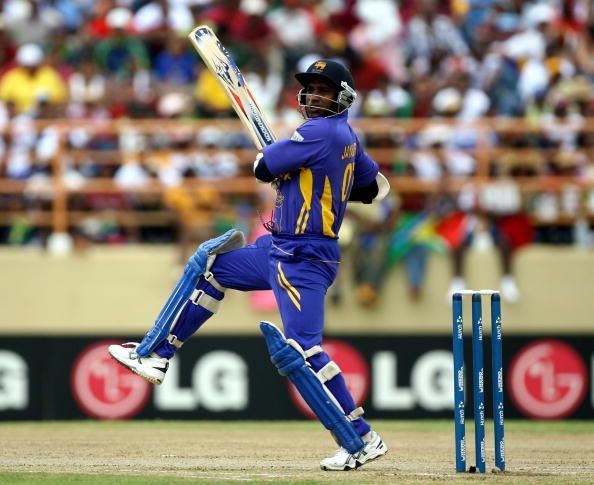
Sanath Jayasuriya did not contribute a lot in the final against Australia in the final of the 1996 World Cup but his exploits in the group stage ensured that Sri Lanka won all the five group stage matches. With his quick-fire innings at the top, he more often than not ensured that the opposition lost their plot right in the beginning.
He came into the 1996 World Cup with a batting average of 19.53 from 98 ODIs and evolved into a better player since then. During the tournament, Jayasuriya scored 221 runs with a strike rate in excess of 130. He scored two half-centuries throughout the World Cup and was awarded the Man of the Match award on both occasions.
His first half-century of the tournament came against India chasing down India's total of 271. Sachin Tendulkar with his run-a-ball 137 helped India post a challenging total at the end of first innings.
Sanath Jayasuriya with two half-century partnerships for the first and second wickets ensured that Sri Lanka were in a comfortable position to chase down the total. After Jayasuriya got out for a 76-ball 79, Arjuna Ranatunga and Hasan Tillakaratne with an unbeaten 129 run partnership ensured that Sri Lanka won the match by 6 wickets.
Sanath Jayasuriya won the three MoM awards for his three centuries later but his best innings in World Cups came against England in quarterfinals of the 1996 World Cup. In reply to England's 235, Jayasuriya ensured that England were out of the game by scoring a 44-ball 82. As a result of the start provided by him, Sri Lanka qualified for the semi-finals for the first time and later went onto win the title.
Also read: Strongest Asian ODI XI featuring 11 captains